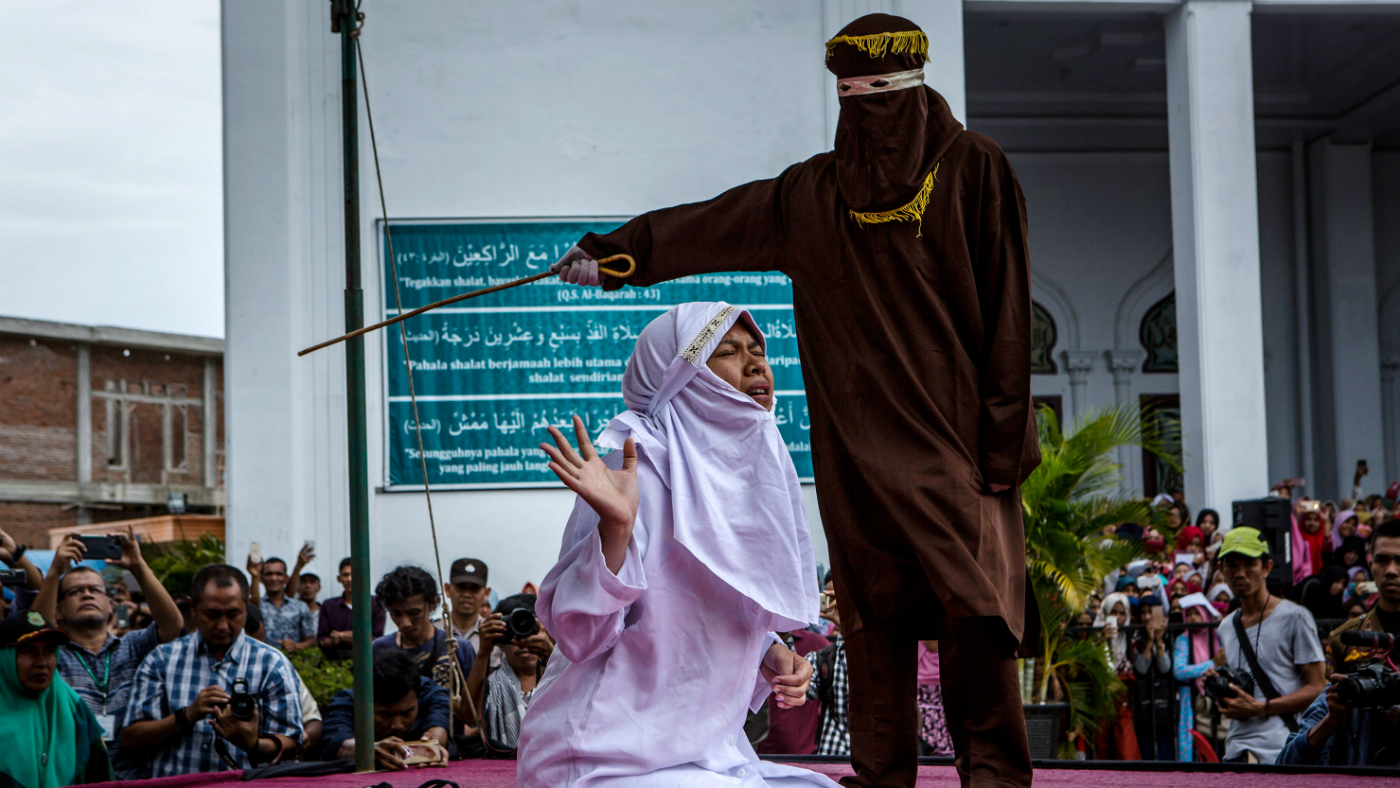Is Indonesia becoming a sharia state?
Jakarta set to pass extreme criminal code enforcing prison sentences for insulting president, sex outside marriage and black magic

A free daily email with the biggest news stories of the day – and the best features from TheWeek.com
You are now subscribed
Your newsletter sign-up was successful
The Government of Indonesia is preparing to implement a new criminal code that would severely restrict civil liberties, including banning sex outside of marriage.
After spending “decades revising its colonial-era criminal code”, Indonesia’s parliament has published a 628-article draft bill to replace the old legislation, The Guardian reports.
The new penal code will reportedly enforce prison sentences for people who engage in extramarital sex, adultery, have an abortion or insult Joko Widodo, the president of Indonesia, which is the world’s most populous Muslim-majority nation.
The Week
Escape your echo chamber. Get the facts behind the news, plus analysis from multiple perspectives.

Sign up for The Week's Free Newsletters
From our morning news briefing to a weekly Good News Newsletter, get the best of The Week delivered directly to your inbox.
From our morning news briefing to a weekly Good News Newsletter, get the best of The Week delivered directly to your inbox.
The Daily Mail reports that the move “comes amidst a recent trend towards deeper religious piety and conservative Islamic activism” in Indonesia.
The proposed changes have triggered an outcry from rights campaigners. Andreas Harsono of Human Rights Watch said: “Indonesia’s draft criminal code is disastrous not only for women and religious and gender minorities, but for all Indonesians.
“Lawmakers should remove all the abusive articles before passing the law.”
Reuters reports that the new criminal code is due to be adopted as early as next week, prompting fears that Indonesia is on the brink of becoming a sharia state. So what exactly is happening in Indonesia and what will it mean for its citizens?
A free daily email with the biggest news stories of the day – and the best features from TheWeek.com
Why is the criminal code being changed?
The Indonesian Parliament began proceedings to replace the country’s original criminal code in 1995. According to The Sydney Morning Herald, “much of the current code dates back to the era of Dutch colonialism, pre-World War II”.
Lawmakers told Reuters that the new penal code “was a long overdue expression of Indonesian independence and religiosity”.
Nasir Djamil, a politician from the Prosperous Justice Party, said: “The state must protect citizens from behaviour that is contrary to the supreme precepts of God.”
The current Parliament will finish sitting in a matter of weeks and a vote on the bill is due to take place on 24 September, before the new slate of MPs elected in the 17 April elections take their seats in October.
What is in the new code?
The new criminal code contains a number of extreme measures that have prompted widespread alarm among activists.
The code stipulates that unmarried couples who “live together as a husband and wife” could be jailed for six months or face a large fine, while extramarital sex could result in up to a year in jail. Anyone who promotes contraception to a person aged under 18 could also face a prison term or fine.
Other changes include making it illegal for a woman to terminate her pregnancy - a crime punishable by up to four years in prison - and the criminalisation of criticising a judge, fake news, bestiality and black magic, The Sydney Morning Herald reports. The existing blasphemy law will be expanded, and associating with organisations that follow a Marxist-Leninist ideology could see citizens receive a ten-year prison term.
In addition, the code states that anyone who “attacks the dignity” of the president or vice president may face up to four-and-a-half years in prison.
The nature of arrest and prosecution is also set to change under the new rules. A prosecution will be able to proceed if “a village chief, who heads the lowest tier of government, files a complaint with police, and parents or children of the accused do not object”, Reuters reports.
The inclusion of the new power for village chiefs was warranted because “the victim of adultery is also society”, Teuku Taufiqulhadi, a lawmaker from the NasDem Party, told the news agency.
A similar criminal code is already in place in Aceh province, one of the poorest regions of Indonesia.
And the reaction?
Commentators and campaigners worldwide say the new rules could threaten democracy, set back civil liberties and open up new ways to discriminate against the country’s religious and sexual minorities.
Tim Lindsey, director of the University of Melbourne’s Centre for Indonesian Law, Islam and Society, said that “across the board, this is a ratcheting up of conservatism. It’s extremely regressive.”
For a start, gay couples would “automatically be swept up in the crackdown” against sex outside of marriage, because same-sex marriage is already outlawed in Indonesia, The Telegraph says.
Human Rights Watch adds that women are also at risk, as provisions that “effectively censor the dissemination of information about contraception and criminalise some abortions” will “set back women and girls’ rights under international law to make their own choices about having children”.
“The bill’s provisions censoring information about contraception could set back the progress Indonesia has made in recent years to dramatically reduce maternal deaths,” warns the campaign group’s Harsono.
The changes to the code - influenced by traditional Islamic sharia law - also apply to the country’s significant Christian, Hindu and Buddhist minority groups. Member of parliament Teuku Taufiqulhadi this week confirmed that even foreigners visiting Indonesia would be vulnerable to prosecution.